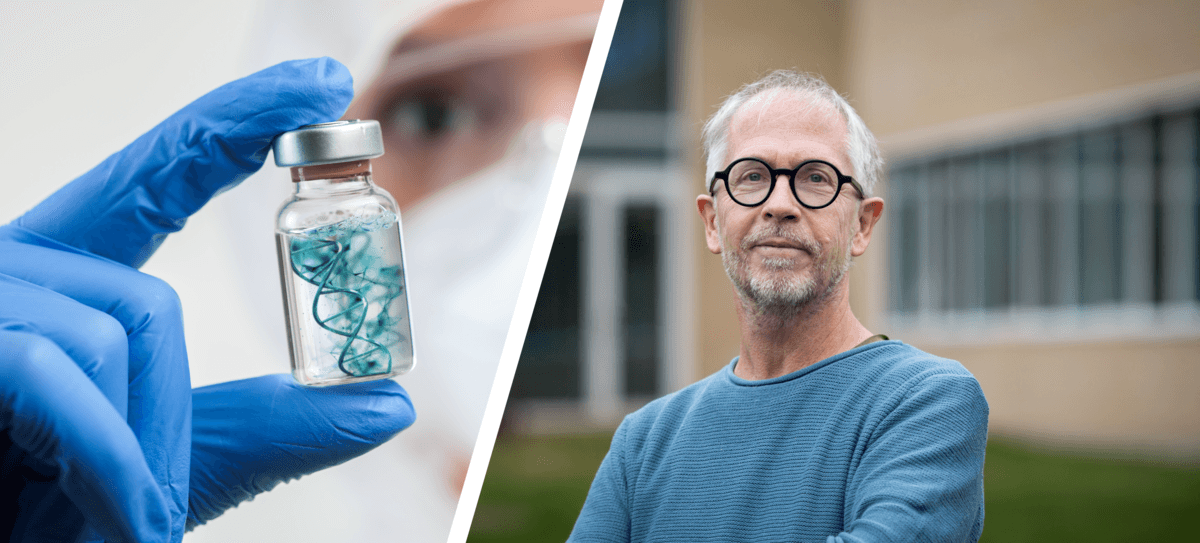RNA Research Center Looks to Advance Metabolic Disease Treatment
Jun 13, 2023
Credit: Wiki Commons
A new team of researchers dreams of making a difference for patients with metabolic diseases such as diabetes, fatty liver, renal fibrosis, and atherosclerosis. Recently obtained funding will provide for an interdisciplinary center to study the development of RNA medicine at Aarhus University, which over a period of 6 years, will develop more effective types of treatment for metabolic diseases.
RNA is widely known for its role in mRNA vaccines to combat COVID-19, but its medicinal potential extends far beyond this application. It has been demonstrated that RNA medicine can rejuvenate muscle strength in those with muscular dystrophy and manage other rare and prevalent genetic diseases.
The Novo Nordisk Foundation has provided DKK 60 million (about $8.7M) in funding to the RNA-META, a novel research center overseen by Professor Jørgen Kjems at Aarhus University. The center aims to cultivate new varieties of RNA medicine and establish techniques for delivering it to unhealthy cells for targeted disease intervention. Alongside Kjems, other noted researchers participating include Kurt Gothelf of Aarhus University, Louise Dalgaard of Roskilde University, and Markus Stoffel of ETH Zurich. The team will center their research on metabolic diseases like diabetes, fatty liver disease, renal fibrosis, and atherosclerosis.

One of the unique aspects of employing RNA in drug creation is the potential to modify the drug to influence the quantity of any protein within the body. Jørgen Kjems explains, "The RNA can either neutralize or even replace the disease-causing proteins in the affected cells. This means that RNA drugs have an almost unlimited potential for treating human diseases."
However, the path to harnessing this potential is not without obstacles. RNA drugs are relatively large and unstable, making effective delivery to and within cells of metabolism-controlling organs a considerable challenge.
The researchers behind the center are no strangers to RNA and its medical applications. Kjems boasts a 40-year career working with RNA and has published numerous significant studies. The team comprises diverse expertise from organic chemistry to cell biology and preclinical disease models, equipping them with the necessary skills to fine-tune RNA medicine at every stage.
The newly-established center will generate novel and enhanced metabolic disease therapies. The initial stage in this drug development process involves endowing the drugs with a kind of 'GPS' that allows them to locate and target the diseased cells in the body.
The scientists plan to develop durable RNA drugs marked with tags that aid them in seeking their target within the body. Once they reach their destination, these drugs interact with cellular machinery and modulate the genes that govern metabolism, ultimately reducing the patient's symptoms.
Before they can be tested on humans in clinical trials, these RNA medicines will undergo thorough testing on laboratory cells and animal models. Collaborating with the pharmaceutical industry is paramount for the final stage to ensure that the newly developed RNA drugs are prepared to treat patients.
The Novo Nordisk Foundation's Challenge Program substantially contributes to ambitious projects addressing society's significant challenges. This year, Kjems and his team are among the seven recipients of these grants.
Kjems acknowledges the grant saying, "The grant is a great recognition from the Foundation and makes a huge difference to our research. Hopefully, in 5-10 years, we will have medicines for a number of metabolic diseases for which there are currently only ineffective treatments or no treatments at all. In this way, we hope to make a difference for the large group of patients suffering from metabolic disorders."


















